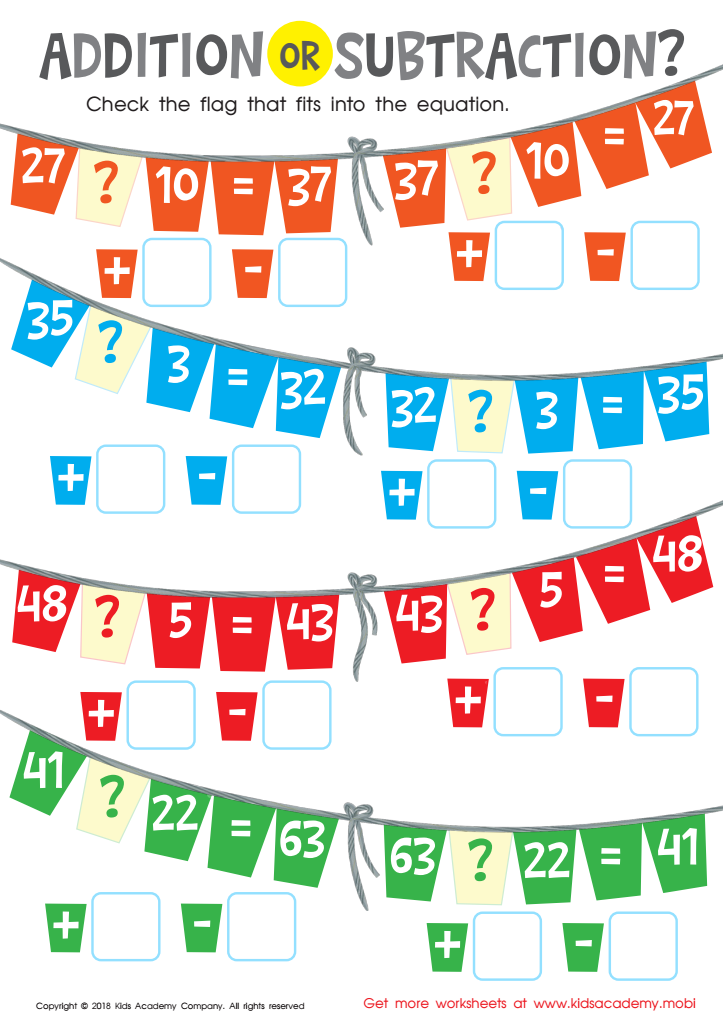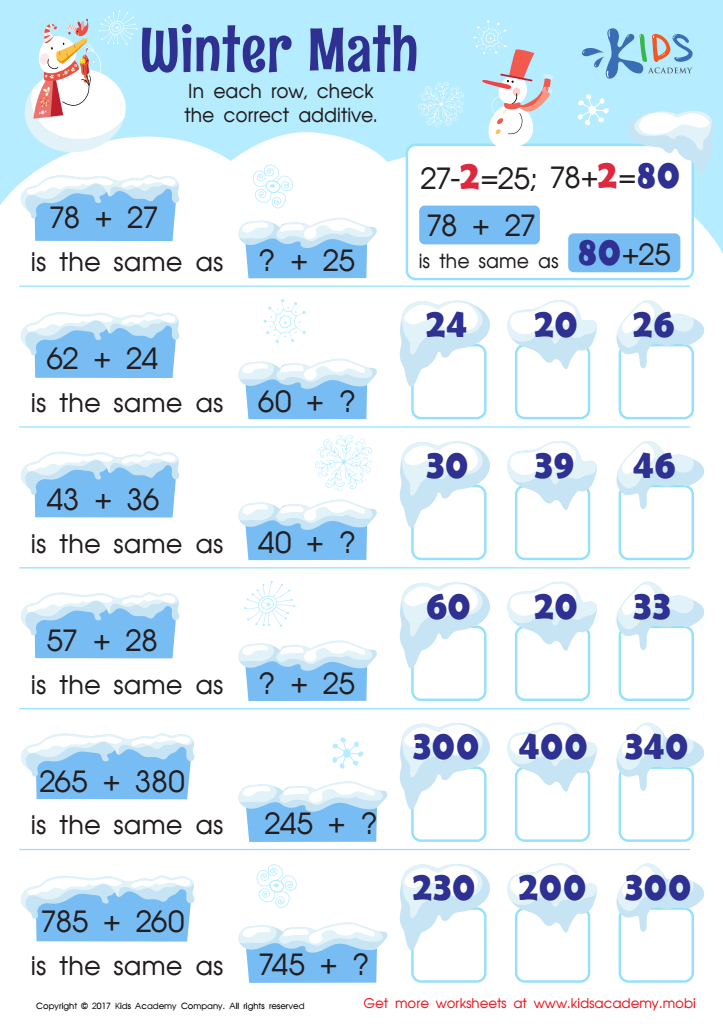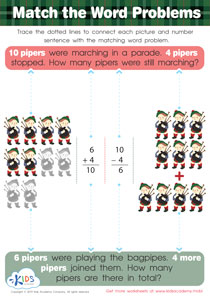Mathematical reasoning Normal Addition Worksheets for Ages 4-9
4 filtered results
-
From - To
Enhance your child's mathematical skills with our engaging Normal Addition Worksheets designed for ages 4-9. These worksheets focus on developing mathematical reasoning through interactive and fun activities that promote critical thinking and problem-solving. Perfect for young learners, our resources help students build a solid foundation in addition by encouraging them to explore numeric relationships and patterns. Children will enjoy practicing their skills while gaining confidence in their arithmetic abilities. Ideal for homeschooling, classroom activities, or supplementary practice, our thoughtfully crafted worksheets are perfect for nurturing a love of math from an early age. Start your child's journey to mathematical mastery today!


Tricky Problems Worksheet: Part 1


7 Continents and 7 Seas Worksheet


Addition or Subtraction? Worksheet


Free Addition Worksheet
Mathematical reasoning, particularly in the context of normal addition for children aged 4-9, is essential for several reasons. First, mastering basic addition lays the foundational skills necessary for more complex mathematical concepts encountered later in education. By developing a strong grasp of normal addition, children enhance their problem-solving abilities and logical thinking, which are fundamental skills not only in math but across all subjects.
Furthermore, understanding mathematical reasoning encourages children to think critically and explore various strategies, fostering a growth mindset. Teachers and parents who prioritize this aspect inspire children to engage actively with numbers, leading to greater confidence and self-efficacy in their abilities. Moreover, frequent practice in normal addition helps solidify memory retention and retrieval skills, making math operations more intuitive over time.
Additionally, math skills correlate with success in future academic pursuits and real-life applications, from budgeting to cooking. Engaging children in playful, collaborative math activities solidifies relationships and makes learning enjoyable. Ultimately, supporting children in developing mathematical reasoning skills during these formative years helps prepare them for the challenges of the future, laying the groundwork for lifelong learning and curiosity in mathematics.
 Assign to My Students
Assign to My Students



















